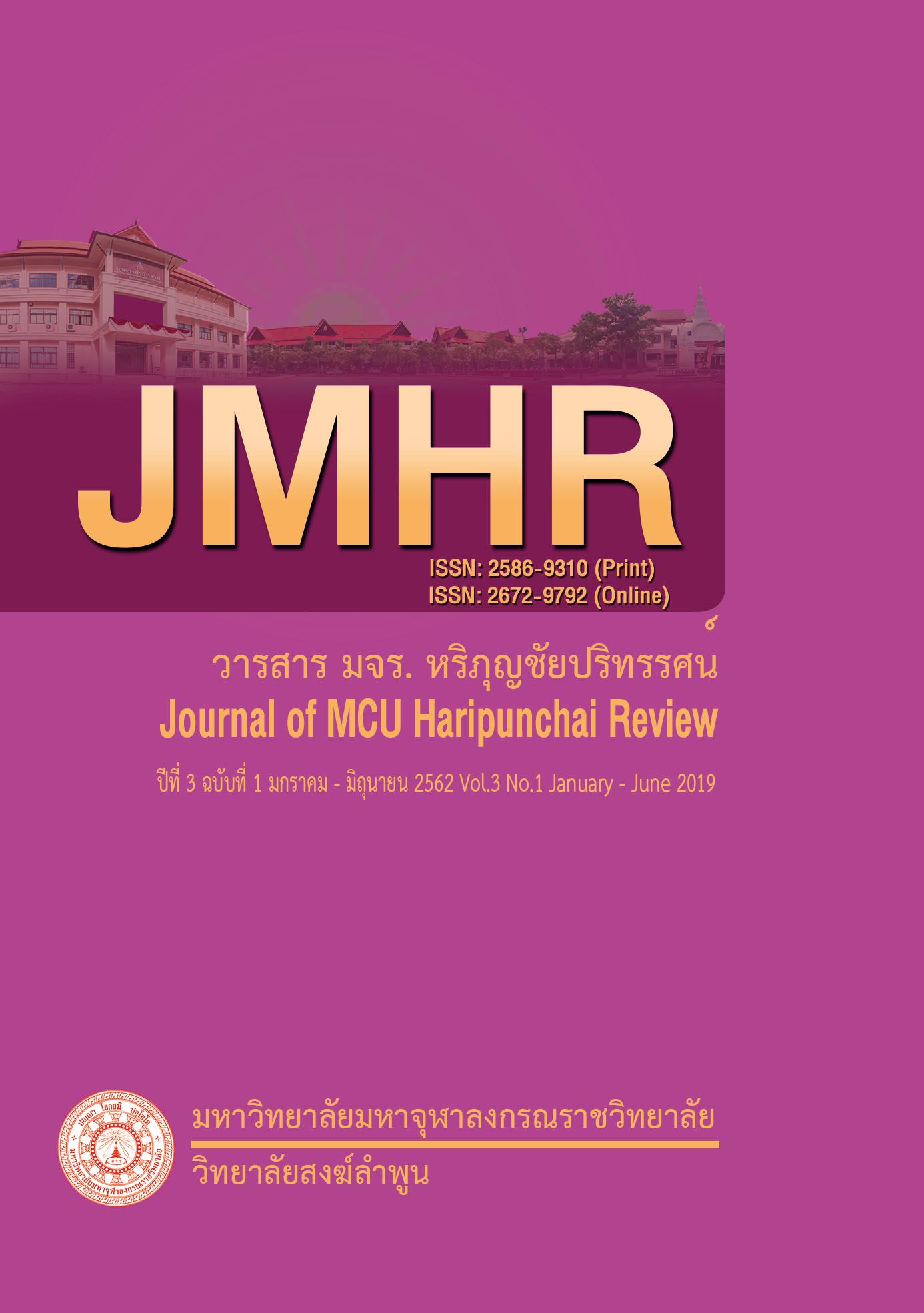Buddhist Ecological: Developing a Sustainable life
Main Article Content
Abstract
This article aims to present the perspective of development sustainable Life, the level of sustainable development, the fundamental factors of sustainability concept, and the Buddhist Integral for Sustainable Development. Also, this study aims to propose guidelines for sustainable development based on the concept of Buddhist ecology.
The documents methodology was used in this study by collecting, analyzing, and synthesizing information in relation to the factors of sustainable development, models of sustainability, the level of sustainable development, and the gap of sustainable development. The study found that the definition of sustainable development is fundamentally based on a sustainable relationship between three factors: social factor, economic factor, and environmental factor. Usually, sustainable development is considered after the emergence of environmental problems from economic development based on the concept of capitalism. Therefore, it is believed that if these kinds of problems are solved, the sustainability will be created. However, it found that in the past years human activities had been changing the ecosystem more rapidly than ever before. The influence from the Reductionism concept led the people to misunderstand that they were the cleverest creatures and could overcome the nature’s power. In fact, they had damaged nature, the environment, the economy and society. In addition, the excess development may have caused human selfishness and lack of spirit on responsibility of everything. The application of Buddhist integration to ecosystem for sustainable mind and social development, analyzed from case studies, found that the Threefold Training--Sila, Samadhi, and Panna—was the dhamma that all sectors had already applied but may have used different dhamma words. But the working process demonstrated that these three dhammas cannot be separated, specifically in this research called “Buddhist integral” and development will change according to the Dependent Origination or to the states arise in dependence upon the related factors. Furthermore, if any organization would apply the Threefold Training doctrine, it could hope that the ecology will be nurtured successfully while attaining the sustainable mind and social development.
Article Details
References
ธเนศวร์ เจริญเมือง. (2542). “จากโลกานุวัตรถึงโลกเทศานุวัตรในสังคมศาสตร์” วารสารวิชาการคณะสังคมศาสตร์ มหาวิทยาลัยเชียงใหม่. 11(2).
ประเวศ วะสี (บก). (2545). ธรรมชาติของสรรพสิ่ง : การเข้าถึงความจริงทั้งหมด. กรุงเทพมหานคร : มูลนิธิสำนึกรักบ้านเกิด.
มหาวิทยาลัยมหาจุฬาลงกรราชวิทยาลัย. (2539). พระไตรปิฎกภาษาไทย ฉบับมหาจุฬาลงกรณราชวิทยาลัย. กรุงเทพมหานคร : มหาจุฬาลงกรณราชวิทยาลัย.
พระธรรมปฎก(ป.อ.ปยุตฺโต). (2546). พจนานุกรมพุทธศาสน ฉบับประมวลศัพท. พิมพครั้งที่11. กรุงเทพมหานคร: มหาวิทยาลัยมหาจุฬาลงกรณราชวิทยาลัย.
. การพัฒนาที่ยั่งยืน. พิมพ์ครั้งที่ 11. กรุงเทพมหานคร : มูลนิธิโกมลคีมทอง, 2551.
พระพรหมคุณาภรณ์ (ป.อ. ปยุตฺโต). (2539). พระพุทธศาสนากับชีวิตและสังคม. กรุงเทพมหานคร : มูลนิธิพุทธธรรม.
ปิยะมาศ ใจไผ่. (2558). “การพัฒนารูปแบบการประยุกต์ใช้แนวคิดนิเวศวิทยาเชิงพุทธเพื่อวิถีชีวิตที่ยั่งยืน”วารสารวิชาการพิฆเนศวร์สาร. มหาวิทยาลัยราชภัฎเชียงใหม่. 11(2).
วีระ สมบูรณ์. (2550). แบบแผนและความหมายแห่งองค์รวม. กรุงเทพมหานคร: มูลนิธิโกมลคีมทอง.
อนุช อาภาภิรม. (2545). การพัฒนาอย่างยั่งยืน : คำตอบอยู่ในความหลากหลาย. กรุงเทพมหานคร : มูลนิธิศูนย์สื่อเพื่อการศึกษา.
อนุกูล ตันสุพล. (2559). “นิเวศวิทยาวัฒนธรรม : กุญแจสู่การพัฒนาที่ยั่งยืน”วารสารวิชาการคณะมนุษยศาสตร์และสังคมศาสตร์. มหาวิทยาลัยสงขลานครินทร์. 12 (1).


